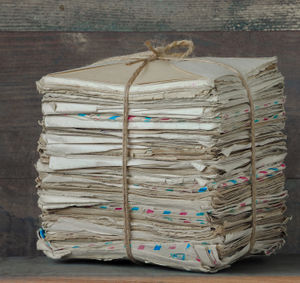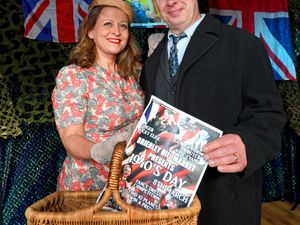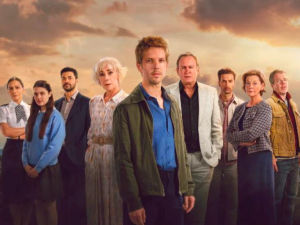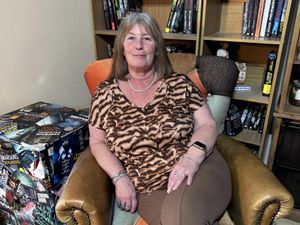Andy Richardson: Never forget what soldiers did for us
The letters have been read twice. They were written by my great grandfather, a soldier who didn’t make it home from World War I.

He was one of the many who made the ultimate sacrifice, who went to War and died on the battlefield.
And as thoughts this week have turned to one of the bloodiest battles of World War I, the infamous Battle of Passchendaele, we can remember those who fell.
My great grandfather wrote letters from the frontline. I still have them. They were kept by my grandmother in a brown suede purse, a most treasured possession, and passed down when she passed away.
I have read them twice. Reading letters from a relative who lived and died before my own birth is one of the most intimate acts of all. He didn’t ever meet his daughter, she was born after he’d been dispatched to fight.
My grandmother spoke about the letters from time to time, during her lifetime. She told me she wanted me to keep them, maybe I’d write about them someday. And I have.
It is easy to let the men and women who fought for our liberty to slip from view. Their sacrifices for our freedom are distant acts that took place in a world unrecognisable from the one in which we now live.
The roads weren’t filled with cars, homes didn’t have TVs, the skies weren’t filled with passenger planes and diets were unreconstructed. They would have sat and talked, rather than immersed themselves in monomaniac worlds of tablets, phones and PCs.
And yet the striking thing about my great-grandfather’s letters isn’t the differences between his life and mine. It’s the similarities. He missed his wife, he wrote in clipped sentences about the tribulations of life on the frontline, he sought news from home and sent his love to his family.
I’ve only read the letters twice. The subject matter is not intimate – but the letters are. They ought not to be treated casually. They deserve reverence and respect. They are the last remains of a man who gave his life like so many others in order that all of us could be free.
Reflections from battlefields in France and Belgium have been poignant this week. There have been tales of bravery and courage, of fortitude and comradeship. Relatives have paid loving tributes to those who fell. They have visited immaculately maintained cemeteries to remember and pay respects.
And it is important that we continue to honour those whose lives were ended or irrevocably changed during that time. For our history informs our present. We learn so much from what went before.
I’m no war historian. I don’t know the names or places that my great grandfather visited. I don’t know what action he saw, where he fell or where he now rests. And, in truth, those would not be the details that revealed his nature.
The measure of the man can be found in his love for his family, in his simple enquiries about his wife and daughter, in the affection he displayed to loved ones far away. They may have been across an ocean, impossible to reach physically, out of range in an era when telephones were not widely used. But they remained in reach.
My great grandfather’s tender words would have struck a chord, offered hope and provided reassurance to the ones who loved him most.
The horrors of The Great War cannot be accurately evoked in the modern idiom. Even Christopher Nolan’s epic war film about Dunkirk and the battle that raged during the Second World War does not portray the events of that sombre excursion. Veterans who have watched it might have been moved but a number have commented, simply: “It was nothing like that.”
Though we live in an uncertain world, where wars rage around the world, where there is crisis in North Korea and Russia and America face a stand-off, where Syria is witnessing the biggest proxy war that the world has ever seen as jihadists and regime fighters torture and murder at will, the lessons of The Great War teach us one simple truth: we must not remember the human cost.
The Battle of Passchendaele, remembered this week by Royalty and relatives, reminds us that war is hell on earth. The sacrifice has been writ large at Last Post ceremonies.
Those who hoped to return home but didn’t were not unknown soldiers. They were someone’s husband, brother, son or friend. Or, in my case, a great grandfather who became known and loved through letters that he could not have imagined I would read.
The news agenda will move on in coming days. But our memories of fallen soldiers should not dim. Our reverence should not stall. We should continue to learn lessons from the past. And we must never forget.





